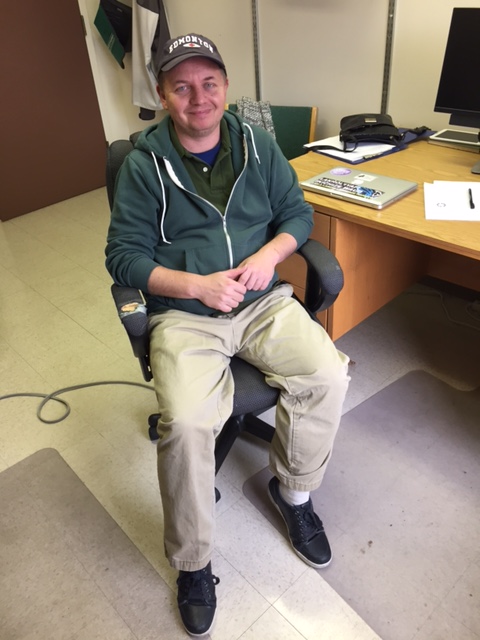
There are more than 60 Aboriginal languages in Canada, grouped into eight distinct language families. With the exception of Cree, Ojibway and Inuktitut, all of them are endangered, many critically so. Unlike Canada's two official languages, Indigenous languages are oral - passed down from one generation to the next, making them acutely vulnerable to cultural shifts and population variances. Linguist Jordan Lachler believes that with the proper resources, these languages can be preserved - if we act now.
"In many cases, the elders are the last generation who grew up with the language, and every day, they get a little bit older," says Lachler. "It's a big ticking clock."
The 2016 Faculty of Arts Undergraduate Teaching Award (Early Achievement) recipient was recently awarded one of six new Faculty of Graduate Studies and Research's Indigenous Community Engagement, Research and Learning (CERL) Grants, each valued at $50,000 for a two-year term. In partnership with four Indigenous communities in Alberta, including the Ermineskin Cree Nation in Maskwacis, Alexis Nakota Sioux, Fort Chipewyan in the north and the Piikani Nation in the south, the project - Responding to the Call: Supporting Indigenous Language Sustainability in Alberta - represents a collaborative effort to provide tangible, community language resources and support.
The project has three goals:
1. High-level discussions with community stakeholders, language teachers and activists about the university's role in helping to sustain Indigenous languages in view of the Truth and Reconciliation Commission's Calls to Action
2. Language training in the communities
3. Resource development, such as dictionaries, phrasebooks, recordings and (maybe) a language teaching app
"These are all communities we've been working with in one way or another over the last few years. They are receptive. It's really about getting the time and the money to do something that will have a positive impact for the community."
Lachler's interest in linguistics and Indigenous language sustainability goes back to his undergrad degree in New York. With a facility for languages, Lachler was captivated by the field of linguistics, which in his words, allowed him to study "every language in the world." Working with Indigenous communities outside of the city raised his awareness of the vulnerability of their languages, deepening his interest even further. "Once I saw that I could get all this linguistic training and work with people in Indigenous communities who, I learned, had a real desire to keep their languages - that clicked for me. This would get me out of bed in the morning!"
Prior to joining the Department of Linguistics in 2011 as assistant professor, Lachler made regular visits to UAlberta each summer to teach at CILLDI (Canadian Indigenous Languages and Literacy Development Institute), Canada's largest training program for speakers and learners of Indigenous languages. Now, as director of CILLDI, Lachler is keen to build on the work the program is already doing by flipping it around and taking the language training directly to the communities with the support of the CERL grant. According to Lachler, the framework will be flexible and responsive to each community's needs, but the priority is to work collaboratively towards the stabilization and revitalization of Indigenous languages in Alberta.
Many of the social challenges faced by Indigenous communities in Canada are connected by history, and as Lachler notes, a big part of this history is the loss of languages.
"The reason I think it's important is because people tell me it is," says Lachler. "What I've seen with my own eyes is that people physically feel the absence of their language. It's hard to be your best in life when you are carrying that burden, especially when you know that your language was taken away in a really egregious way. And then I've seen the reverse, when people - even those just beginning to reconnect with their language - just light up, become fuller versions of themselves. It's hard to quantify or put a number on, but once you witness it, once you can sit down with people and listen to them testify about that experience, about the trauma of the loss but also the sheer joy of the reconnection, it's pretty amazing. We can't undo what happened at residential schools, but we can undo, in a way, the language shift. And healthy, functioning, prosperous Indigenous communities are a win for everybody in Canada."
Lachler is hopeful that Prime Minister Justin Trudeau's recent statement announcing the introduction of an Indigenous languages act "ensuring the preservation, protection and revitalization of First Nations, Métis and Inuit languages" will in fact, do just that, and not be yet another task force. "We've had decades of that," says Lachler, adding that an infusion of funds would have an immediate impact. "We've been working with an absolute shoestring budget for years and years, and we know what needs to happen. We can hit the ground running on day one."